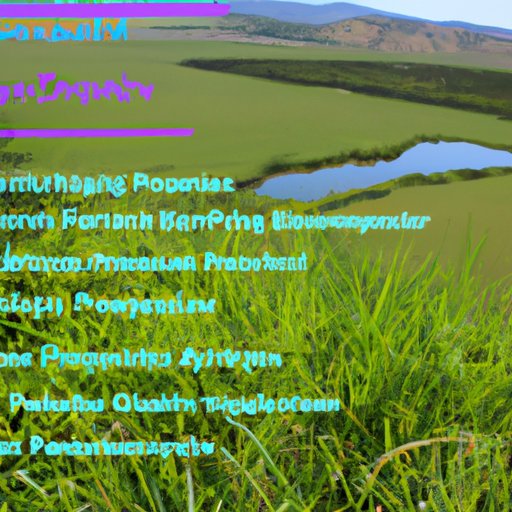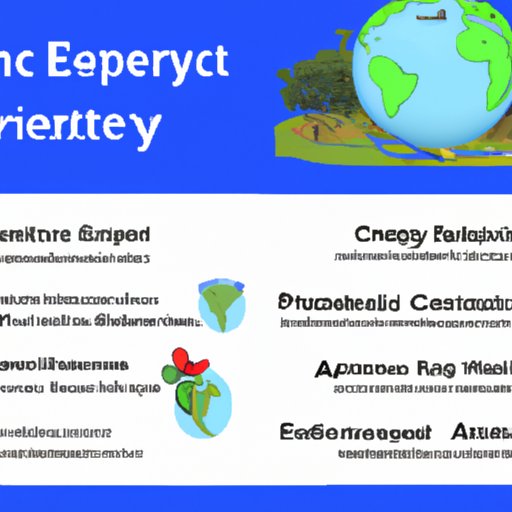
Overview of AP Environmental Science
AP Environmental Science (APES) is a college-level course designed to provide students with an in-depth understanding of environmental science. The course focuses on the scientific principles, concepts, and methods used to understand the natural world and its interactions with human society. AP Environmental Science provides students with the opportunity to gain knowledge and skills that are essential for making informed decisions about the environment and its resources.
The course was first introduced by the College Board in 1998 as part of their Advanced Placement program. Since then, it has grown in popularity and is now offered in over 11,000 high schools worldwide. The course content is based on the College Board’s AP Environmental Science Course Description, which outlines the topics that are covered in the course.
Benefits of Taking AP Environmental Science
Taking AP Environmental Science can be beneficial for students in many ways. One of the most obvious benefits is the ability to earn college credit by passing the AP Exam. Students who score a 3 or higher on the exam are typically eligible for college credit, depending on the institution. This can save time and money when it comes to completing a college degree.
In addition to college credit, taking AP Environmental Science can also open up a variety of career opportunities. According to a recent study conducted by the College Board, students who took AP Environmental Science were more likely to pursue a career related to the environment than those who did not take the course. This includes careers in environmental science, engineering, conservation biology, law, and education.
Finally, taking AP Environmental Science can help students gain a better understanding of the environment and its resources. The course covers a variety of topics, from ecology and earth systems to human impacts on the environment and environmental chemistry. By the end of the course, students should have a thorough knowledge of environmental science and its applications.
Common Course Topics
AP Environmental Science covers a wide range of topics related to the environment and its resources. Some of the most common topics include:
- Ecology: This section covers the relationships between organisms and their environment, including energy flow, food webs, and population dynamics.
- Earth Systems: This section covers the physical processes that shape Earth’s landforms and climate, such as plate tectonics, weathering and erosion, and atmospheric circulation.
- Human Impacts on the Environment: This section covers the effects of human activities on the environment, such as air and water pollution, deforestation, and habitat destruction.
- Environmental Chemistry: This section covers the chemical components of the environment and how they interact with each other and with living organisms.
Exam Format and Content
The AP Environmental Science Exam is administered annually in May. It is a two-hour, multiple-choice exam with a total of 60 questions. The exam is divided into four sections:
- Multiple Choice: This section consists of 45 multiple-choice questions that cover all of the topics covered in the course.
- Free Response: This section consists of four free-response questions that require students to apply their knowledge of environmental science to analyze a given scenario.
- Document-Based Questions: This section consists of six document-based questions that require students to analyze and synthesize information from provided sources.
- Data Questions: This section consists of five data questions that require students to interpret and evaluate data presented in tables and graphs.
The exam is scored on a scale of 1 to 5, with 5 being the highest score. In order to receive college credit, students must score a 3 or higher on the exam.
Preparing for the Exam
Preparing for the AP Environmental Science Exam requires dedication and hard work. However, there are several resources that can help students prepare for the exam, such as:
- Resources: The College Board provides a wealth of resources for AP Environmental Science, including practice exams and test prep materials.
- Practice Exams: Taking practice exams is one of the best ways to prepare for the AP Environmental Science Exam. There are a variety of online practice tests available, as well as full-length practice exams published by the College Board.
- Study Tips: Developing a study plan and setting aside time to review key concepts are essential for success on the exam. It is also important to stay organized and keep track of important dates and deadlines.
Strategies for Success
In addition to studying for the exam, there are several other strategies that can help students succeed on the AP Environmental Science Exam. These include:
- Time Management: Time management is crucial for success on the exam. It is important to create a schedule and stick to it in order to ensure that all material is covered.
- Test Prep: Taking practice tests and reviewing material prior to the exam can help students feel more confident and prepared on test day.
- Test Day Tips: On test day, it is important to arrive early, bring all necessary materials, and stay focused throughout the entire exam.

Potential Career Paths Related to AP Environmental Science
Upon completion of the AP Environmental Science Exam, students may choose to pursue a career related to the environment. Some potential career paths include:
- Environmental Scientist: Environmental scientists use their knowledge of the environment and its resources to conduct research and develop solutions to environmental problems.
- Environmental Engineer: Environmental engineers design and construct projects that reduce the impact of humans on the environment.
- Conservation Biologist: Conservation biologists work to protect and restore endangered species and habitats.
- Environmental Lawyer: Environmental lawyers specialize in laws related to the environment and advise on legal matters related to environmental policy.
- Environmental Educator: Environmental educators teach people about the environment and its resources, and promote sustainable practices.
AP Environmental Science can be a challenging course, but it provides students with the opportunity to gain valuable knowledge and skills that can help them pursue a career related to the environment. In addition, students who pass the AP Exam may also be eligible for college credit, saving time and money when it comes to completing a college degree.
(Note: Is this article not meeting your expectations? Do you have knowledge or insights to share? Unlock new opportunities and expand your reach by joining our authors team. Click Registration to join us and share your expertise with our readers.)
